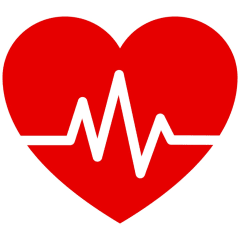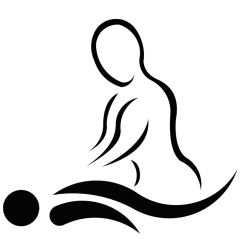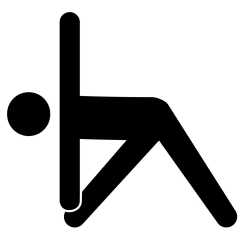10 Best Kinesiology Careers
Are you fascinated by the human body? Do you have a passion for health, fitness, and wellbeing?
If so, a kinesiology degree may be for you. Students in this major explore all aspects of human movement, taking courses in physiology, anatomy, sport psychology, motor development, and more. They develop a deep understanding of how the body's components fit together, what causes injuries, and how exercise can contribute to a healthy lifestyle. They also learn how nutrition and fitness can be used to help people function better, recover from injuries, and improve their overall wellbeing.
There are no shortage of professional opportunities available to a kinesiology graduate. Many go on to find jobs in health and wellness, recreation and leisure, or education. But because of their strong transferrable skills in communication, research, critical thinking, and time management, they can find work in a wide range of industries. Let's take a look at a few of the most common ones.
This article will be covering the following careers:
| Career | Avg Salary | Satisfaction | Your Match |
|---|---|---|---|
| Exercise Physiologist | $61k | 3.4/5 | |
| Coach | $19k | 3.8/5 | |
| Occupational Therapist | $69k | 3.0/5 | |
| Personal Trainer | $34k | 3.5/5 | |
| Chiropractor | $64k | 3.2/5 | |
| Recreation Worker | $14k | 3.6/5 | |
| Massage Therapist | $33k | 3.4/5 | |
| Dietetic Technician | $33k | 2.6/5 | |
| Physiotherapist | ?? | 3.2/5 | |
| Physical Education Teacher | $28k | 3.4/5 |
Are these careers suited to you? Our comprehensive career test measures your personality traits and interests and matches you to over 800 careers.
1. Exercise Physiologist
Exercise physiologists work with a wide variety of patients, helping them to boost their wellbeing through exercise and analysis. Their patients can range from professional skiers who are training up for the next race to people with diabetes who are seeking to improve their general health. No matter who they work with, the exercise physiologist's task is the same: assess the patient's overall wellness, then develop a personalized health plan to help them live better, stronger, and—hopefully—longer.

Exercise Physiologist
An exercise physiologist specializes in studying how the body responds and adapts to physical activity and exercise.
2. Coach
With their formal training in anatomy and sport psychology, as well as their strong interpersonal skills, kinesiology graduates are ideal candidates for many coaching careers. They might find themselves coaching soccer at an athletic summer camp, for example, or providing wellness advice to individual clients on a one-on-one basis. But whatever their niche, they'll enjoy the social, varied nature of this line of work, as well as the opportunity to make real, positive change in others' lives.

Coach
A coach supports and guides individuals or groups in various areas of personal or professional development.
3. Occupational Therapist
Occupational therapists are dedicated to helping people function better in daily life. What this looks like can differ significantly from patient to patient, depending on the person's specific disability, injury, or illness. Whatever the cause of the person's physical challenges, occupational therapists provide ways to lessen their impact or overcome them all together. They analyze their patients' condition, then help them develop skills and techniques to assist them at home, work, and play.

Occupational Therapist
An occupational therapist (OT) works with individuals of all ages and abilities to help them participate in meaningful activities or occupations that are important to them.
4. Personal Trainer
Becoming a personal trainer is one of the most common next steps for a kinesiology graduate. These personable professionals spend their days with clients of all kinds, providing them with individualized fitness plans that help them achieve their personal wellness goals. They might help a client lose weight, develop core strength or flexibility, improve their fitness after childbirth, and more. Not only do kinesiology majors possess the physiological and anatomical knowledge required in this role, they also have the communication skills needed to thrive in it.

Personal Trainer
A personal trainer works with individuals to help them achieve their health and fitness goals.
5. Chiropractor
Chiropractors possess a nuanced understanding of anatomy and physiology, which they use to help their patients recover from pain and injury. By applying a series of targeted physical adjustments, they correct misalignment in the body—and especially within the spine. This, in turn, allows patients to increase their range of motion, ease their discomfort, and improve their overall wellbeing. Kinesiology students interested in this career will need to obtain additional training—a doctor's of chiropractic—but for right candidate, the rewards will be well worth the effort.

Chiropractor
A chiropractor specializes in the diagnosis, treatment, and prevention of musculoskeletal disorders, particularly those affecting the spine.
6. Recreation Worker
Recreation workers literally get paid to play. These energetic professionals are found in a wide range of work settings, including summer camps, aquatic centres, nursing homes, residential care facilities, and community centres. They guide groups of clients—from kids to seniors—in recreational activities such as swimming, hiking, kayaking, dance, and archery. In addition to providing supervision and ensuring the safety of the group, they also offer tips for how to maximize the physical benefits of each activity.

Recreation Worker
A recreation worker plans, organizes, and leads recreational activities for various groups of people.
7. Massage Therapist
Although a degree in kinesiology isn't required to pursue a career in massage therapy, it can be a major asset. Great massage therapists possess a nuanced understanding of their clients' muscles, ligaments, joints, and tendons, as well as an awareness of how various kinds of movement can improve or damage the body's complex systems. Kinesiology students explore all of these topics during their studies, and also develop the people skills required to make clients feel as comfortable and relaxed as possible.

Massage Therapist
Massage therapists specialize in the art of providing therapeutic massages to clients.
8. Dietetic Technician
Dietetic technicians work alongside registered nutritionists, assisting them in planning food and preparing meals for clients with specific nutritional needs. They work in a range of settings, including group facilities, such as nursing homes and hospitals, and one-on-one situations. Kinesiology majors take courses in nutrition, growth and development, and health and lifestyles during their degree—an ideal foundation for a career in personalized nutritional care.

Dietetic Technician
A dietetic technician plays an important role in helping individuals manage their nutrition and dietary needs.
9. Physiotherapist
Physiotherapists are highly skilled medical professionals who help treat and prevent injury, disorders, and disease through exercise, manipulation, massage, and other physical treatments. They play an essential role in the healthcare system, assisting clients with everything from arthritis to Parkinson's disease live fuller, more comfortable lives. Although additional training is required, a bachelor's in kinesiology is an ideal place to start.

Physiotherapist
A physiotherapist specializes in the assessment, diagnosis, and treatment of physical conditions or injuries that limit a person's ability to move and perform daily activities.
10. Physical Education Teacher
Obtaining a bachelor's in kinesiology is one of the best ways to prepare for a career in physical education (PE). PE teachers work with students of all fitness levels, helping them to develop strength, flexibility, and a lifelong love of physical activity. On a daily basis, they coach students through activities such as weight training, basketball, cross country, stretching, and even games like Capture the Flag. They also prepare lesson plans that can be adapted to each individual's skill level and assess students' performance throughout the semester.

Physical Education Teacher
A physical education (PE) teacher is responsible for instructing students in physical fitness, sports, and other physical activities.